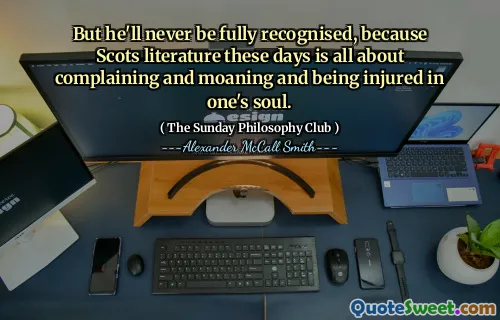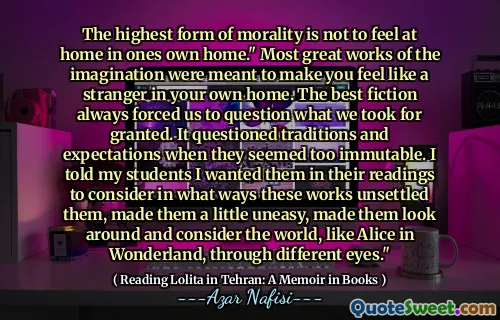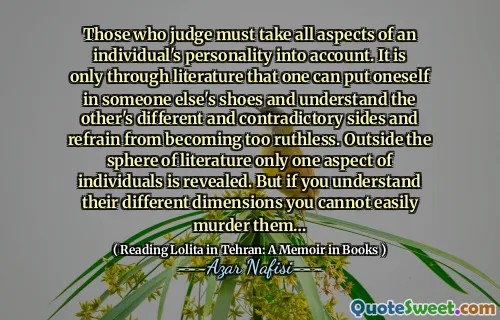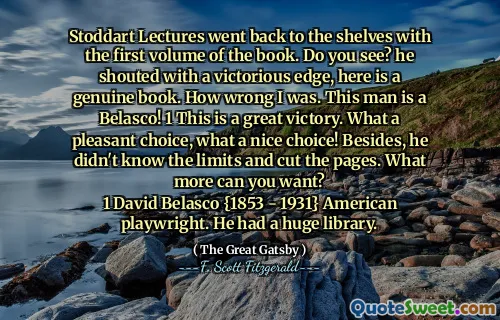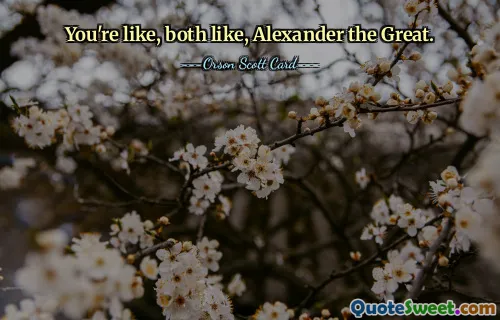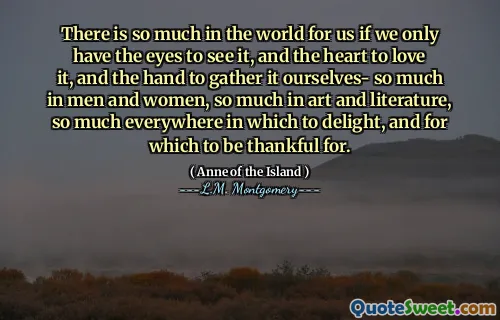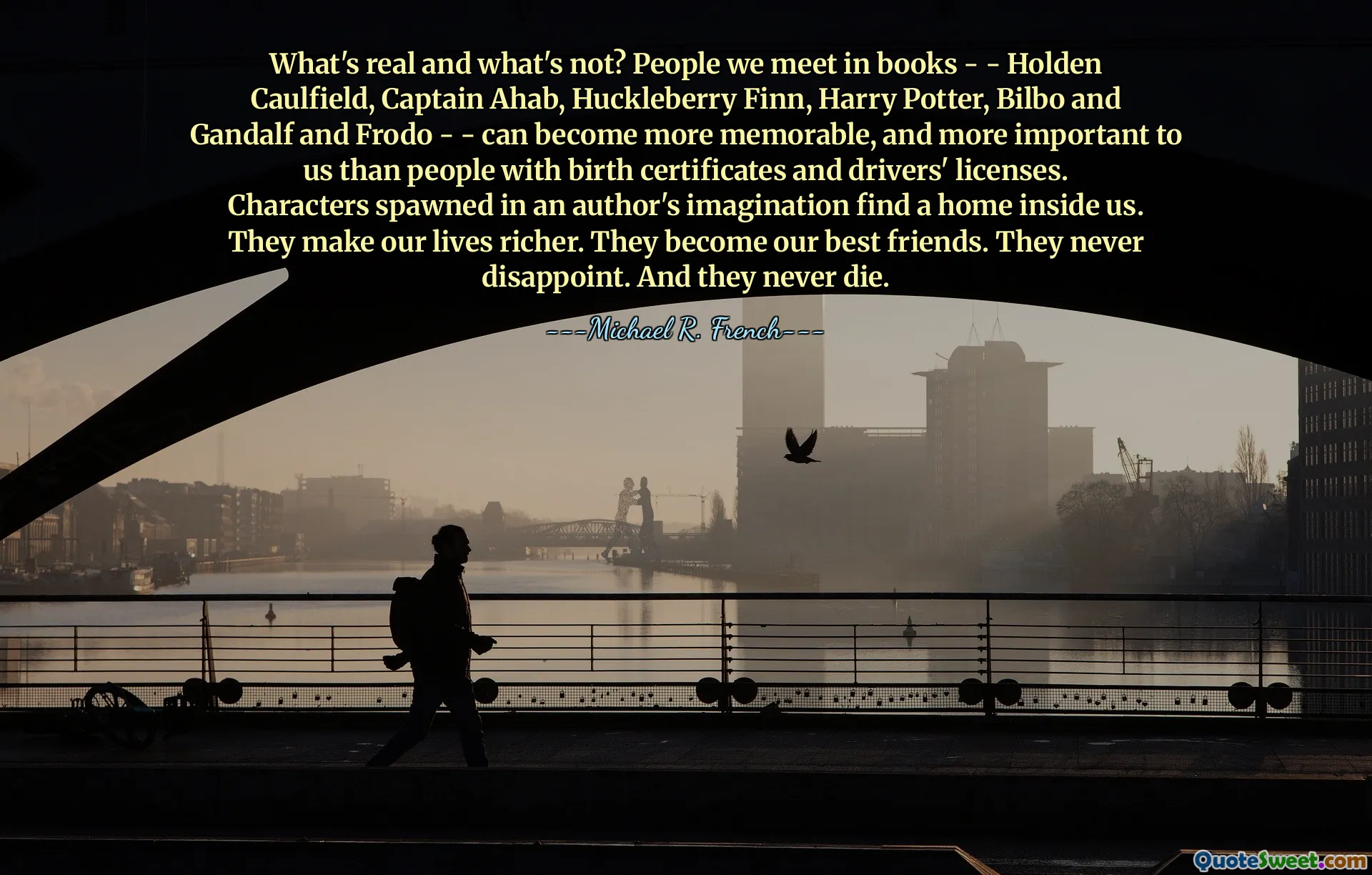
What's real and what's not? People we meet in books - - Holden Caulfield, Captain Ahab, Huckleberry Finn, Harry Potter, Bilbo and Gandalf and Frodo - - can become more memorable, and more important to us than people with birth certificates and drivers' licenses. Characters spawned in an author's imagination find a home inside us. They make our lives richer. They become our best friends. They never disappoint. And they never die.
This quote profoundly captures the enduring power of fictional characters and the deep connections readers forge with them. Literature serves as a portal into diverse worlds, personalities, and philosophies, offering readers companionship that often surpasses real-world interactions. Characters like Holden Caulfield or Huckleberry Finn embody complex human emotions and moral dilemmas, echoing aspects of our own struggles and aspirations. Harry Potter and Frodo symbolize hope and resilience amidst adversity. These characters become fixtures in our mental landscape, influencing how we see ourselves and the world around us. Unlike real people, they are unchanging and always available in our moments of reflection. The emotional bonds formed with fictional characters can be astonishing—they feel like friends who never betray us, who understand us, and who stay with us across the years. Literature, therefore, forms a vital part of our emotional and cognitive development. It offers comfort, inspiration, and a sense of belonging. This quote highlights how fictional worlds and characters help us navigate reality, teach us empathy, and provide an invaluable source of joy and insight. In essence, these creations of an author's imagination become a deeply personal part of our lives, shaping our experiences and enriching our inner worlds in ways that few other relationships can match.






